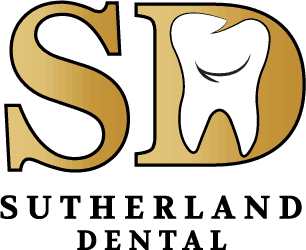Calcium is a key ingredient for strong teeth and bones. It is also essential for overall mouth functioning, reducing blood pressure and keeping your heart beating at a steady rate. Therefore, if you’re showing signs of calcium deficiency, it is about time that you did something about it. By this, it means that your calcium levels in the blood are low. This can not only cause dental concerns but also causes your bones to become brittle.
If you’re feeling concerned about the amount of calcium you’re consuming as part of your lifestyle, seeking advice from the dentist is a great first step.
The recommended daily dose is 1000mg. If there isn’t enough free deficiency, this can decalcify your bones, increasing the risk of bone deformation or bone loss.
If you’re showing one or more of the following signs of calcium deficiency, it is time to increase your intake.
#Sign 1 – Regular Fatigue
If calcium isn’t released to the muscle cells, your muscles become weaker and you begin to feel fatigued. Those that drink regular caffeine are likely to experience high levels of energy. Although, it is important that the natural calcium-rich minerals are consumed. From the food you consume, it releases the vital energy you need throughout the day.

#Sign 2 – Oral Health Problems
Low calcium can also lead to tooth decay and cavities forming on teeth, particularly for children. When teeth decay, this can lead to enamel breaking down, creating damage to the surface of the teeth and causing acid reflux. When this happens, you may eventually experience tooth loss. Read here to learn how to keep your enamel strong.
#Sign 3 – Abnormal Heartbeat
With low calcium levels, the heart muscles are unable to contract appropriately for a rhythmic heartbeat. It can cause an abnormal heartbeat or something known as cardiac arrhythmias. This means your heart will beat irregularly and faster than normal.
#Sign 4 – Blood Clots
A high deficiency can also form blood clots which reduce blood flow. When you sustain a minor injury, blood will form easily, and the blood clot forms slowly. This risks the chance of more blood flow release. Calcium has a strong link to blood clotting.
#Sign 5 – Loss of Bone Density
Bone density naturally weakens as we age because calcium is lost naturally faster than we store it. As we get older, calcium will be an essential mineral for your teeth and bones. Therefore, ensure you top up on your calcium levels.

Final Thoughts…
To ensure that you hit your daily intake, eat the following foods as part of your diet and lifestyle: Milk, cheese, dairy products, green vegetables such as broccoli and kale, soya products such as tofu and milk, and dry nuts. You may also find calcium supplements to help support your intake should you not gain access through natural foods. Either way, ensure your intake is high, and ensure you pay attention to it immediately if its not currently part of a balanced diet.
If you’re struggling with your calcium intake, you can contact our helpful and knowledgeable dentists at Sutherland Dental today for dietary advice.



